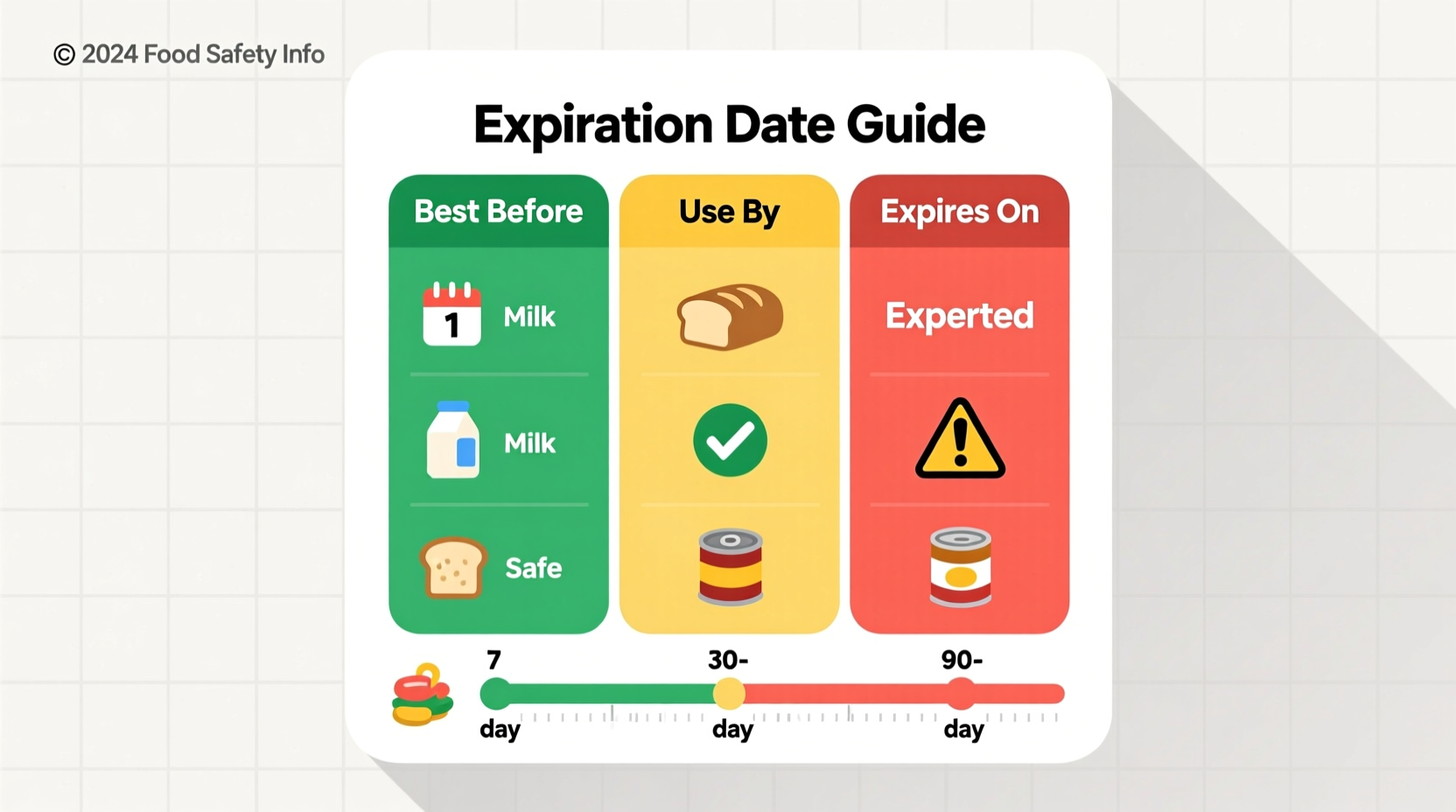Eating expired food typically causes no harm, but can lead to foodborne illness with symptoms like nausea, vomiting, and diarrhea depending on the food type, storage conditions, and how far past expiration it is. Most "expired" dates indicate peak quality, not safety - except for infant formula and some perishables.
What Really Happens When You Eat Expired Food? Separating Fact From Fear
We've all been there - reaching for that yogurt in the back of the fridge only to discover it's three days past its "best by" date. Before you panic, understand that expiration dates serve different purposes than most people realize. This guide provides science-based information to help you make informed decisions about food safety.Your Immediate Risk Assessment Framework
Not all expired foods pose equal risks. The actual danger depends on three critical factors:- Food type - Perishables like dairy and meat carry higher risks than shelf-stable items
- Storage conditions - Proper refrigeration dramatically extends safe consumption periods
- Date type - "Use by," "best by," and "sell by" dates have different meanings
| Food Category | Typical Risk Level | Common Symptoms | When to Seek Help |
|---|---|---|---|
| Dairy products | Moderate | Nausea, stomach cramps | Signs of dehydration |
| Raw meat/poultry | High | Vomiting, fever, bloody diarrhea | Within 24 hours of symptoms |
| Canned goods | Low (unless bulging) | Rare but severe (botulism) | Immediately if suspected |
| Dry goods | Very low | Generally none | N/A |
Understanding Food Date Labels: What They Really Mean
According to the U.S. Food and Drug Administration, most date labels relate to quality rather than safety. The USDA explains that "best by" dates indicate when food is at peak flavor and texture, not when it becomes unsafe. Critical exceptions include infant formula (must be consumed by date) and some perishable items like fresh meat. The CDC reports that improper food handling causes approximately 48 million cases of foodborne illness annually in the United States, but most cases stem from improper storage rather than simply exceeding date labels.
Critical exceptions include infant formula (must be consumed by date) and some perishable items like fresh meat. The CDC reports that improper food handling causes approximately 48 million cases of foodborne illness annually in the United States, but most cases stem from improper storage rather than simply exceeding date labels.
What to Do If You've Eaten Expired Food
Most people experience no symptoms after consuming slightly expired food. If you do feel unwell:- Monitor symptoms - Mild stomach upset usually resolves within 24 hours
- Stay hydrated - Replace fluids with water or oral rehydration solutions
- Don't induce vomiting - This can cause additional complications
- Seek medical attention if you experience high fever, bloody stool, or signs of dehydration
Food-Specific Safety Guidelines
Different foods have varying risk profiles after their date passes:- Dairy - Generally safe 5-7 days past date if properly refrigerated; discard if sour or moldy
- Eggs - Can be safe 3-5 weeks past date; test freshness with the water float method
- Canned goods - Safe indefinitely if undamaged, but quality declines after 2-5 years
- Dry goods - Typically safe for months past date; watch for moisture or pests
When Expired Food Becomes Dangerous: Context Boundaries
Expired food becomes hazardous under specific conditions:- Perishable foods left in the "danger zone" (40°F-140°F) for more than 2 hours
- Canned goods with bulging lids or leakage (potential botulism risk)
- Foods showing visible mold, unusual odors, or texture changes
- High-risk populations consuming even slightly expired perishables (pregnant women, elderly, immunocompromised)
Practical Food Safety Strategies You Can Implement Today
Instead of relying solely on date labels, adopt these evidence-based practices:- Learn to trust your senses - smell, sight, and texture often provide better indicators than dates
- Understand your refrigerator's actual temperature (should be 40°F or below)
- Rotate pantry items using the "first in, first out" method
- Freeze items before they expire for later use
- Keep a food safety thermometer in your kitchen
When to Definitely Discard Expired Food
Certain situations warrant immediate disposal regardless of the date:- Any food from dented, bulging, or leaking cans
- Dairy products with visible mold (not just surface mold)
- Raw meat with grayish color or sour smell
- Leftovers that have been in the fridge longer than 4 days
- Foods stored at improper temperatures











 浙公网安备
33010002000092号
浙公网安备
33010002000092号 浙B2-20120091-4
浙B2-20120091-4